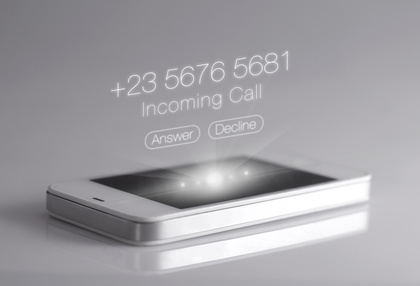The U.S. Court of Appeals for the Third Circuit recently held that a consumer satisfied the concreteness requirement for constitutional standing and asserted a valid cause of action under the federal Telephone Consumer Protection Act (TCPA), where she alleged she received one unsolicited prerecorded phone call to her cell phone. Accordingly, the Third Circuit reversed the order of the trial court granting the defendant’s motion to dismiss. A copy of the opinion in Susinno v. Work Out World Inc. is available at: Link to Opinion. The plaintiff consumer alleged that she received an unsolicited call on her cell phone from the…
Posts tagged as “TCPA”
A recent decision from the Third Circuit Court of Appeals examines both the provision of consent under the federal Telephone Consumer Protection Act (TCPA) and the bona fide error defense for debt collectors under the federal Fair Debt Collection Practices Act (FDCPA). The decision has dire implications for debt collectors, creditors and any commercial enterprise using telephone technology and QR codes in communicating with customers. A copy of the decision in Daubert v. NRA Group, LLC is available at: Link to Opinion. First up is the TCPA. The trial court ruled that the collection agency violated the TCPA when it used…
The U.S. Court of Appeals for the Seventh Circuit recently concluded that a putative class representative’s unaccepted deposit of payment with the trial court under Fed. R. Civ. P. 67 by the defendant does not moot the representative’s individual claim or disqualify him from serving as a class representative. The Seventh Circuit described the issue as a variation of the one presented in Campbell-Ewald Co. v. Gomez, 136 S. Ct. 663 (2016). As you may recall, in that case, the Supreme Court concluded that an unaccepted settlement offer or offer of judgment does not moot a plaintiff’s case. The specific…
The U.S. Court of Appeals for the Second Circuit recently concluded that a consumer’s consent to receive manual or automated telephone calls is irrevocable under the Telephone Consumer Protection Act (TCPA) when the consent was included in a binding contract. The Second Circuit described the issue as one not previously addressed by the Federal Communications Commission (FCC) or any court of appeal – i.e., “whether the TCPA also permits a consumer to unilaterally revoke his or her consent to be contacted by telephone when that consent is given, not gratuitously, but as bargained-for consideration in a bilateral contract.” The Court held that consent…
The U.S. Court of Appeals for the Seventh Circuit recently concluded that a consumer’s consent to receive promotional information from a retailer is sufficient consent under the federal Telephone Consumer Protection Act (TCPA) to receive other mass marketing texts. The primary issue the Seventh Circuit addressed was the scope of the consent the consumer provided when she gave her cell phone number to the retailer. The consumer argued that she only provided her cell phone number to receive special discount offers, and did not consent to “mass marketing” text messages. The Seventh Circuit rejected the argument, and determined that the…
The U.S. Court of Appeals for the Eighth Circuit recently affirmed the dismissal of a putative class action brought under the federal Telephone Consumer Protection Act (TCPA) for making unsolicited telemarketing calls. The Eighth Circuit held that the plaintiff had given prior express written consent to receive the calls, and the trial court properly considered redacted business records that showed the consumer had given his prior express written consent to be called. A copy of the opinion in Zean v. Fairview Health Services is available at: Link to Opinion. A consumer who purchased a medical device filed a putative class…
The U.S. Court of Appeals for the District of Columbia Circuit recently held that the Federal Communications Commission’s 2006 Solicited Fax Rule exceeded its authority under the federal Telephone Consumer Protection Act (TCPA) to the extent that it requires opt-out notices on fax advertisements sent with the permission of the recipient (“solicited” faxes) as well as on unsolicited fax advertisements. A copy of the opinion in Bais Yaakov of Spring Valley, et al v. FCC, et al is available at: Link to Opinion. A company that sells generic drugs faxed advertisements to small pharmacies containing weekly pricing information and “specials.” Many…
The U.S. Court of Appeals for the Eleventh Circuit recently affirmed the dismissal of a complaint alleging violations of the federal Telephone Consumer Protection Act, the federal Fair Debt Collection Practices Act (FDCPA) and its analogue under Florida state law, because the plaintiff previously filed a separate lawsuit against the same defendant alleging violations of the TCPA based on the same conduct. Because the Eleventh Circuit concluded that the claims asserted in the second action were based on the same nucleus of operative facts, the plaintiff was barred from splitting her claims among the lawsuits. A copy of the opinion…
The U.S. Court of Appeals for the Ninth Circuit recently held that under Spokeo, Inc. v. Robins, 136 S. Ct. 1540, 194 L. Ed. 2d 635 (2016), a consumer alleged a concrete injury sufficient to confer Article III standing to pursue a Telephone Consumer Protection Act claim for alleged nonconsensual text messages. In so ruling, the Court held that a consumer may revoke his or her consent, but must clearly express that he or she does not want to receive the messages or calls. The Court concluded that, in this case, the consumer gave prior express consent to receive the…
In an appeal involving the settlement of four separate class actions under the federal Telephone Consumer Protection Act (TCPA), the U.S. Court of Appeals for the Eighth Circuit recently held that the trial court did not abuse its discretion by electing to use the “percentage-of-the-benefit” method to calculate class counsel’s fee award, as opposed to the “lodestar” method. The Eighth Circuit also held that the trial court did not abuse its discretion by allowing the respective class counsel to distribute the award amongst themselves without judicial oversight or approval. A copy of the opinion in Lindsey Thut v. Life Time…
The U.S. Court of Appeals for the Sixth Circuit recently reversed a district court’s denial of class certification and dismissal of consolidated complaints alleging that a mortgage lender violated the federal Telephone Consumer Protection Act (TCPA) by sending “junk faxes” to businesses without their consent or a pre-existing business relationship. In so ruling, the Court held: (a) the mere mention of a defense is not enough to defeat the predominance requirement under Fed. R. Civ. P. 23(b)(3); and (b) an unaccepted settlement offer or offer of judgment does not moot a plaintiff’s case. A copy of the opinion in Bridging…
The United States District Court for the Middle District of Pennsylvania recently determined that the sole issue for trial was whether the consumer should be awarded treble damages in his complaint alleging a violation of the Telephone Consumer Protection Act because “a plaintiff need not answer or hear a call to prove prohibited conduct under the TCPA, but need only prove the act of placing the call itself.” A copy of the opinion in Manuel v. NRA Group, LLC is available at: Link to Opinion. The consumer alleged that the issue of statutory damages was resolved by the Court during…







